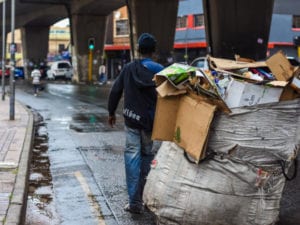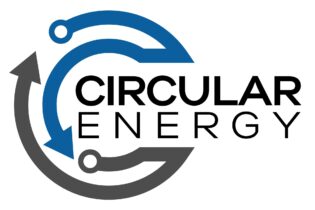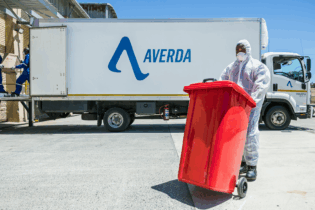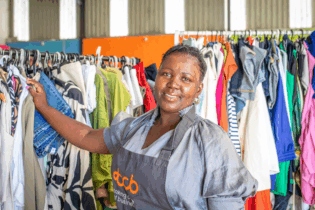South Africa’s waste management approach faces numerous challenges, particularly as environmentalists call for traditional waste processing measures to be done away with.
Limited resources, population growth and poor infrastructure are increasingly impacting on waste collection and management systems. In light of this, the City of Tshwane has decided to revamp its waste management system in a bid to improve waste collection and management within the city. Speaking at Sustainability Week 2019, Abel Malaka, head: Waste Management Division, City of Tshwane, said the municipality is looking at improving its waste processes. “We are developing a detailed approach to waste solution processes in the city, and also developing a vision for the future. Those are two things we didn’t have before, and it affected the city’s waste collection negatively,” said Malaka. The city plans to focus on the three main issues that need urgent attention and will insure that waste collection is handled better in Tshwane. First, the city is looking to convert garden waste into compost, thereby reducing the amount of garden waste that ends up in landfill sites. Second will be the roll-out of separation-at-source initiatives and household education campaigns to improve recycling rates. This requires that the city broaden and formalise its waste collection system to ensure the effective recycling and handling of waste. Finally, Tshwane will focus on the integration of informal waste pickers into their waste management system. Turning garden waste into compost “What has happened in the past is that we have had a situation where garden waste – even waste that was disposed of at garden sites – ended up being taken back to the landfill sites by the city. This meant that garden waste dumping sites were not being used effectively,” said Malaka. To combat this, the city is now looking into building garden waste shredders at its existing landfill sites. This will allow garden waste dropped off at landfill sites to be immediately shredded, stockpiled and then taken off-site to be developed into compost. Malaka said the city will make use of local businesses to run the process of shredding the garden waste, and, in turn, wants 30% of the compost back, for use in the city’s national gardens and parks. Separation at source and formalised waste collection Among other initiatives, Tshwane is investigating an inventive system to encourage recycling at household level. “But that would need to go hand in hand with a formalised waste collection system,” said Malaka. The city is also considering implementing a double-collection system, with separate trucks and schedules for general waste and recycling. “We want the first truck to be purely for general waste and the second one will collect all the recycled goods. In that way, we will be able to keep tabs on which households are recycling and then maybe reduce their rates and taxes forthat month.” Malaka said that the city would provide plastic recycling bags to households. Waste collectors will then have to note down every time they collect recycling waste from a household. This would also require the city to establish an administrative office to strictly deal with that.
“Obviously, this system is a work in progress. There are a lot of factors to take into consideration, like waste pickers in communities that are not gated. The city is looking at a lot of ways to promote recycling in the city and looking at a possible incentive programme that could make people take recycling more seriously.”
In order to support all the plans and initiatives the city is thinking of implementing, Malaka stressed that a more formalised and effective waste collection system would need to be established. Apart from the double-collection system, the city is still looking at ways to improve the current collection system and is open to suggestions from the public. Integration of waste pickers “The first thing that needs to be done is to bring back dignity into the waste picking industry, because they bring value to our waste management processes,” said Malaka. “As the city, we are planning to build facilities where waste collectors can sort their recyclable goods instead of sitting on the side of busy roads or in areas where they can be targeted.” The city will have the off-takers meet the waste pickers at these facilities and exchange waste there, rather than have the pickers walk long distances to drop-off centres. Malaka said the city is planning on building three sites at first, after which more facilities will be built as and when demand arises. The sites will also provide waste pickers with the following: • a place to clean and sort their waste • ablution facilities where they can shower • small offices where they can perform any administrative duties • cages where they can leave theirtrolleys overnight • lockers to leave their recyclables if an off-taker was not available for that day. Malaka further stated that the application of by-laws would come at a later stage; but for now, the city is focused on meeting the waste pickers halfway, by providing safe environments where they can conduct their business. Although the city’s plans are a work in progress, Malaka said the municipality would like to start by implementing small changes and work its way up to implementing legislative changes.







